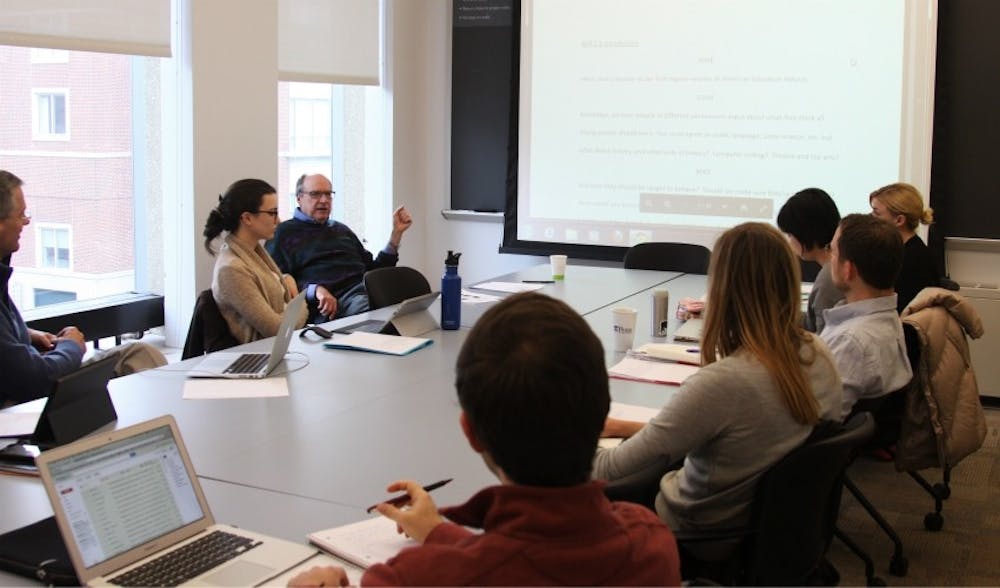
Tiffany Pham // The Daily Pennsylvanian
Amid a barrage of opinions over a Penn teaching assistant’s tweet admitting that she calls on black female students to talk first in class, a professor at the University of Missouri, Columbia took action of her own, according to a report in the Chronicle of Higher Education.
Rebecca Martinez, a professor of gender and women's studies, formed an "academic freedom syllabus" that she hopes can prepare scholars for online harassment.
The impetus for Martinez's move was an Oct. 16 tweet by Penn teaching assistant Stephanie McKellop, which has singe gone viral, that reads, "I will always call on my Black women students first. Other [people of color] get second tier priority. [White women] come next. And, if I have to, white men.”
Steven J. Fluharty, the dean of the School of Arts and Sciences, released a statement, saying Penn was looking into the controversy around McKellop and would “ensure that [the] students were not subjected to discriminatory practice.”
He added, "Contrary to some reports, the graduate student has not been removed from the program and we have and will continue to respect and protect the graduate student’s right to due process."
“We really have to protect ourselves,” Martinez said in an interview with the Chronicle of Higher education. “Our universities have to protect our academic freedom.”
Martinez was watching on Twitter as the situation surrounding McKellop’s comments escalated.
The next morning, Martinez decided to take action.
In the interview, she expressed disapproval over Penn’s handling of the conflict, saying administrators responded to the conflict first without much consideration for the faculty.
“You know you can’t do these things without due process within the university system," she said.
The syllabus will include topics like “the history and definitions of academic freedom, . . . the rise of the global alt-right and attacks on academics, [and] higher-ed responses to attacks on academics,” Martinez added.
While critics have called her pedagogical approach discriminatory, McKellop has defended the teaching method known as “progressive stacking” in which professors call first on students who may be less likely to speak otherwise.
"Penn thinks I'm racist and discriminatory towards my students for using a very well worn pedagogical tactic which includes calling on [people of color]," McKellop tweeted.
Martinez agreed and added in her interview with the Chronicle that faculty feel vulnerable and unable to teach in situations such as this one.
“It feels like our voice is taken away,” she said. “What are academic institutions if not for academic freedom?”
The Daily Pennsylvanian is an independent, student-run newspaper. Please consider making a donation to support the coverage that shapes the University. Your generosity ensures a future of strong journalism at Penn.
Donate







